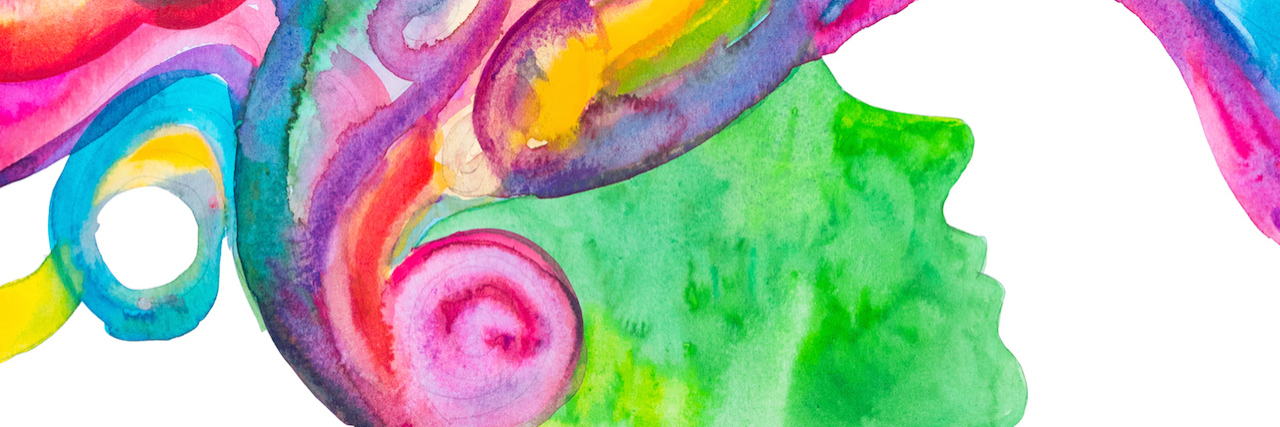6 Ways Living Through Trauma Changed My View of the World
Editor's Note
If you’re looking for creative inspiration, check out the Daily Inspirations group on The Mighty.
I feel like the whole pandemic thing has perhaps heightened some of my mental illness experiences (to be expected really, let’s be fair) and it’s kind of obvious to say that trauma and C-PTSD (complex post-traumatic stress disorder) can change your view of the world. Trauma changes a person.
I was thinking about this lately. Which parts of me are me, as in my personality, and which parts of me are C-PTSD-induced? It’s hard to tell, but it got me thinking about how I’ve changed over the years.
Hypervigilance
This is a big one (and a somewhat obvious one).
Hypervigilance is the ruler of all things. I analyze every situation I go into aware of potential danger — and I mean every single one. This includes everything from washing up to chopping veg to going in the sea. My life is ruled by it. It’s a constant awareness that brings my attention to things that others probably don’t even think about. Before I do something I’ve thought about everything that could happen.
All it takes is for my partner to go “oh, fuck” and the adrenaline starts going. This could be because he’s stubbed his toe or lost something or literally anything at all, but my immediate thought is that he’s injured himself or something terrible has happened.
People often think I’m lazy or boring because of avoidance or reluctance, but the main reason for this is an extreme awareness of danger. My mind lives to seek out threat.
Empathy
I thought about this a few evenings ago whilst watching the Netflix show, “After Life.” I won’t give any spoilers, but it made me think about how knowledge of mental illness and experiences of absolute shitness, whether that be grief and loss, panic, anxiety, depression, whatever, can actually make you more empathetic towards others who may be experiencing the same.
I really can’t bear the thought of someone else experiencing panic because I know how terrible it is. If someone I know is going through something I feel it a lot. I’m deeply affected by things.
Are people actually OK?
I know that you can spend your life putting on a front. I know that you can smile, you can laugh, you can seem confident and joyful and say “I’m fine” when you’re the complete opposite. I know that it can be convincing. People can and do spend their lives as actors and actresses.
I worry a lot about people. I look for the smallest signs of anything that might suggest otherwise when people tell me they’re “fine.” Before I may have believed them, or shown some concern and perhaps been like “are you sure?” if I thought they seemed a bit off. Now, I’m so aware that things are not how they seem and that the most confident or “happy” people can really be experiencing severe struggle that I worry so much about what may actually be going on for people.
Priorities
As I’ve got a bit older my priorities have naturally shifted, which I think is quite usual. But I do also wonder if it’s amplified by my experiences. I don’t ever want to be in a place of panic. I know what it’s like and I’m not up for doing it again if I can avoid it. My life decisions (and even day-to-day ones) are in support of this.
Nothing is ever worth getting burnt out. Nothing is worth sacrificing your mental health for. I live by this and I share it with others often. I say, “If it doesn’t serve you, cut it out,” and I think it’s important to say “no.” Why do we say yes to things we don’t want to do? I get that there are some things in life that we just have to do, but on the whole I think learning to say no is really important.
Distrust
A friend said to me last week, “You’re well-attuned to bullshit.” And I thought yeah, maybe I am. But I also thought, maybe I just look for the worst. This means that when someone is having me on I spot it, but it also means that I think people are when they’re not. I do think that part of this is my personality (thanks, Dad) and I won’t let anyone take me for a ride. I’m OK to say what I think. My friends remind me of this often. But I don’t think I’m naturally distrusting? Looking for the worst in people isn’t an ideal way of life and I don’t want to be like that.
Resilience
I’m not saying that you can’t be resilient if you haven’t experienced mental illness because you absolutely can, but I feel like I’m personally more resilient now than I used to be. Sometimes without realizing. When you’ve experienced trauma, everything really can be a battle. From routines and day-to-day life to television ads and shows, conversations that people have around you, all sorts.
I think it was EMDR that taught me to be resilient — or maybe that I already was. I went and sat with a therapist every week for 15 weeks and relived trauma every time. It was bloody hard, but I did it. But even day-to-day, sometimes I realize how resilient I am just by getting up and trying again. Just by getting out of bed, getting dressed or going to work, or when the simplest of tasks feel utterly mountainous. It can take a lot to face the day, but we do. We all do.
Follow this journey on Little Thoughts.
Getty image via Kateryna Kovarzh

